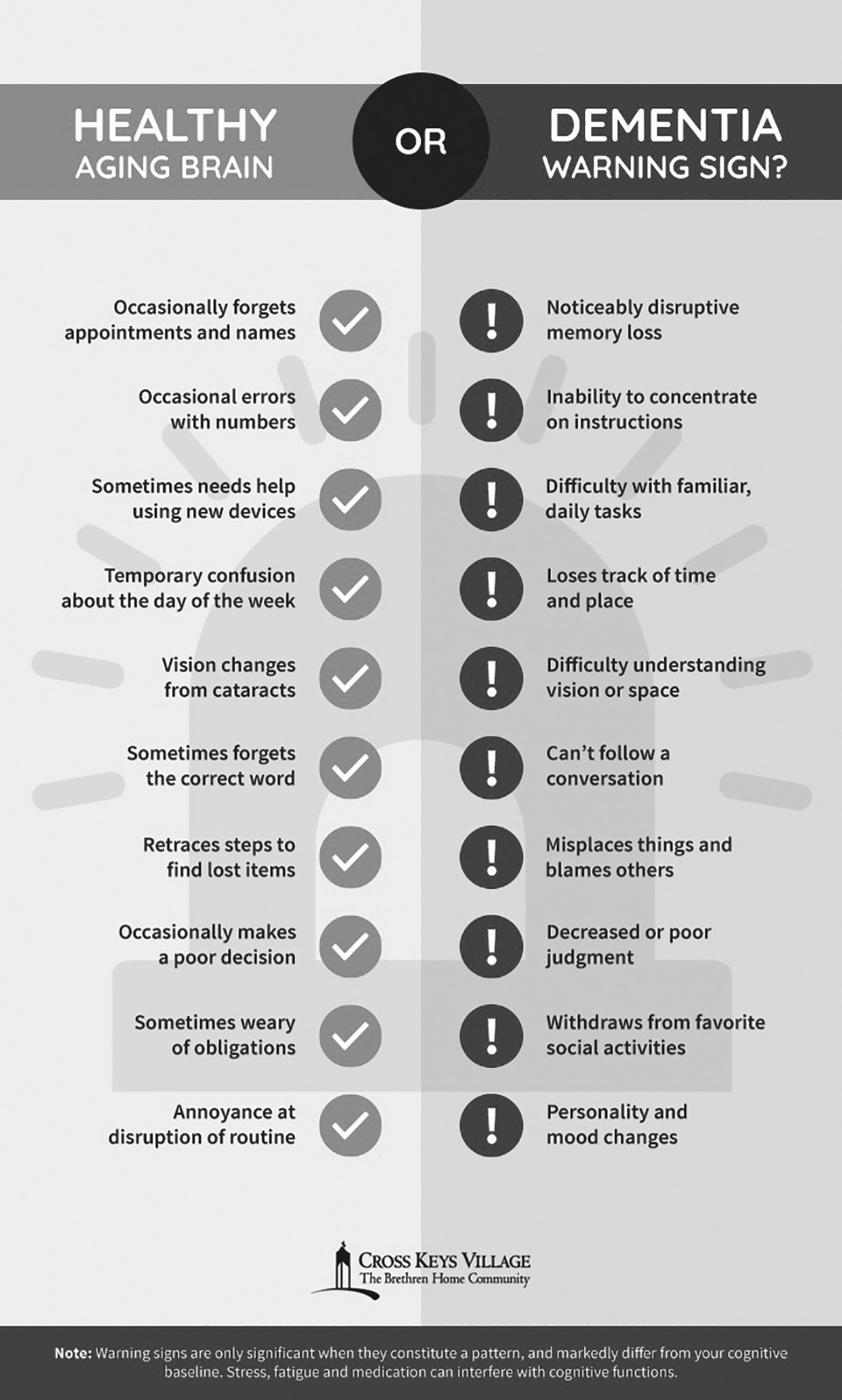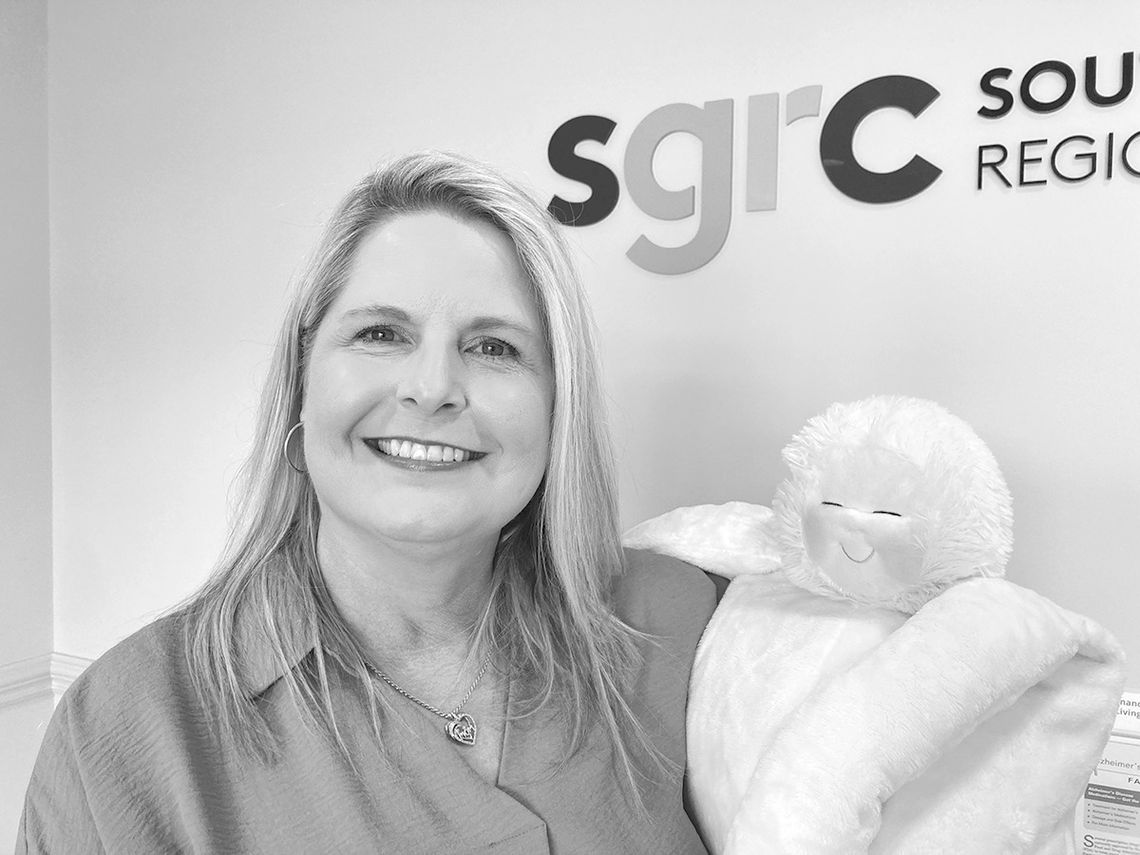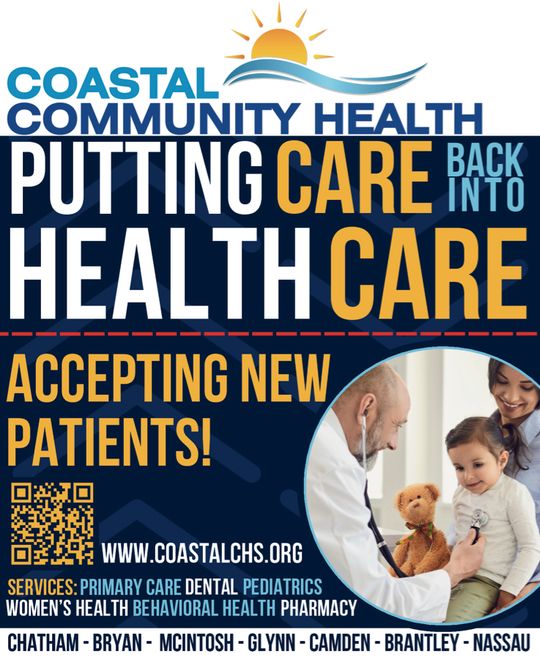A dementia diagnosis for yourself or a loved one is both frightening and bewildering. Because there is no cure for dementia, many people often believe their lives are over and have no idea where to go for help.
Dementia Care Specialist Christy Joyner wants the community to know there is hope and help here in southeast Georgia. Her specialty is helping families live fully and fruitfully despite the diagnosis.
Joyner’s office at Southern Georgia Regional Commission Area Agency on Aging is full of toys. There’s a large stuffed animal with long arms to hug your neck, a battery operated meowing cat to stroke, small sleeping dogs gently snuffling in their beds, and life sized baby dolls to rock to sleep. What appear to be toys are actually tools.
Joyner pets the furry gray and white cat which flicks its ears.
“I had a family in Douglas recently,” said Joyner. “Their mother was very loving and calm, but she didn’t want to be by herself. They couldn’t just turn the TV on and go to the next room. She wanted someone with her.
“She was a cat person, so we gave her a cat like this. For someone with a broken brain, they don’t feel like they’re by themselves.”
Joyner shows off her collection of fidgets, one with buttons, one with keys, one with zippers and ribbons.
“A lot of times in nursing homes you’ll hear, ‘Ms. Jones is taking things.’ Is she taking them, or is she just finding things to fidget with?” asks Joyner. “It (a fidget) really does make a difference.”
Joyner, who worked in home health for 20 years, began working at SGRC in 2021. Her position as a Dementia Care Specialist was made possible by the Georgia General Assembly’s 2022 $1.25 million dollar investment to create the Dementia Care Specialist Program.
According to the Georgia Division of Aging Services, the goals of the program are to “build an effective infrastructure to support caregivers, promote the adoption of person and family centered care with the person living with dementia and their caregivers at the center of care teams, and to offer information, education, and care coordination to those impacted by dementia.”
The program in Ware County started January 2023. Through the program, Joyner offers free educational training to civic organizations, churches, college health and medical students, and any group who would like to learn more about dementia. The training Joyner offers is not medical.
“I’m teaching them how to react with the person, to respond better, to get in their reality and what that looks like,” said Joyner. “Sometimes the family member taking care of the person means well and they love the person so much, but they actually may be doing something making the situation worse and they don’t even realize it.”
Often families deal quietly with a dementia diagnosis because they feel there is no help available.
“We did a church in Douglas and 57 people came,” said Joyner. “When it was over the Pastor said, ‘I had no idea how many within our church were dealing with this.’” According to mayoclinic. org, “Dementia is a term used to describe a group of symptoms affecting memory, thinking and social abilities. In people who have dementia, the symptoms interfere with their daily lives. Dementia isn’t one specific disease. Several diseases can cause dementia.”
Among the diseases which can cause dementia are Alzheimer’s, Parkinson’s and Huntington’s. Among the forms of dementia are Lewy body, vascular, frontotemporal and mixed.
Although dementia has no cure, there are many things that help prevent dementia onset, including remaining physically active, eating well, getting good sleep, exercising the brain with puzzles, reading and socializing.
“The worst thing you can do is stay home all day and just look at the television,” warns Joyner.
The new Waycross Area Dementia Caregiver Support Group meets the second Tuesday of each month from 4 p.m. to 5 p.m., at the The Refinery located at 522 Miles Still Rd., Waycross, 31503. For information, call facilitator Clyde Hames at 912816-3806.
For educational training sessions for your organization, contact Christy Joyner at 912-2856097/912-287-5888 or email [email protected].
For information about services for older people, at-risk adults, people with disabilities, their families and caregivers, call 1-888732-4464.

Infographic courtesy of Cross Keys Village










